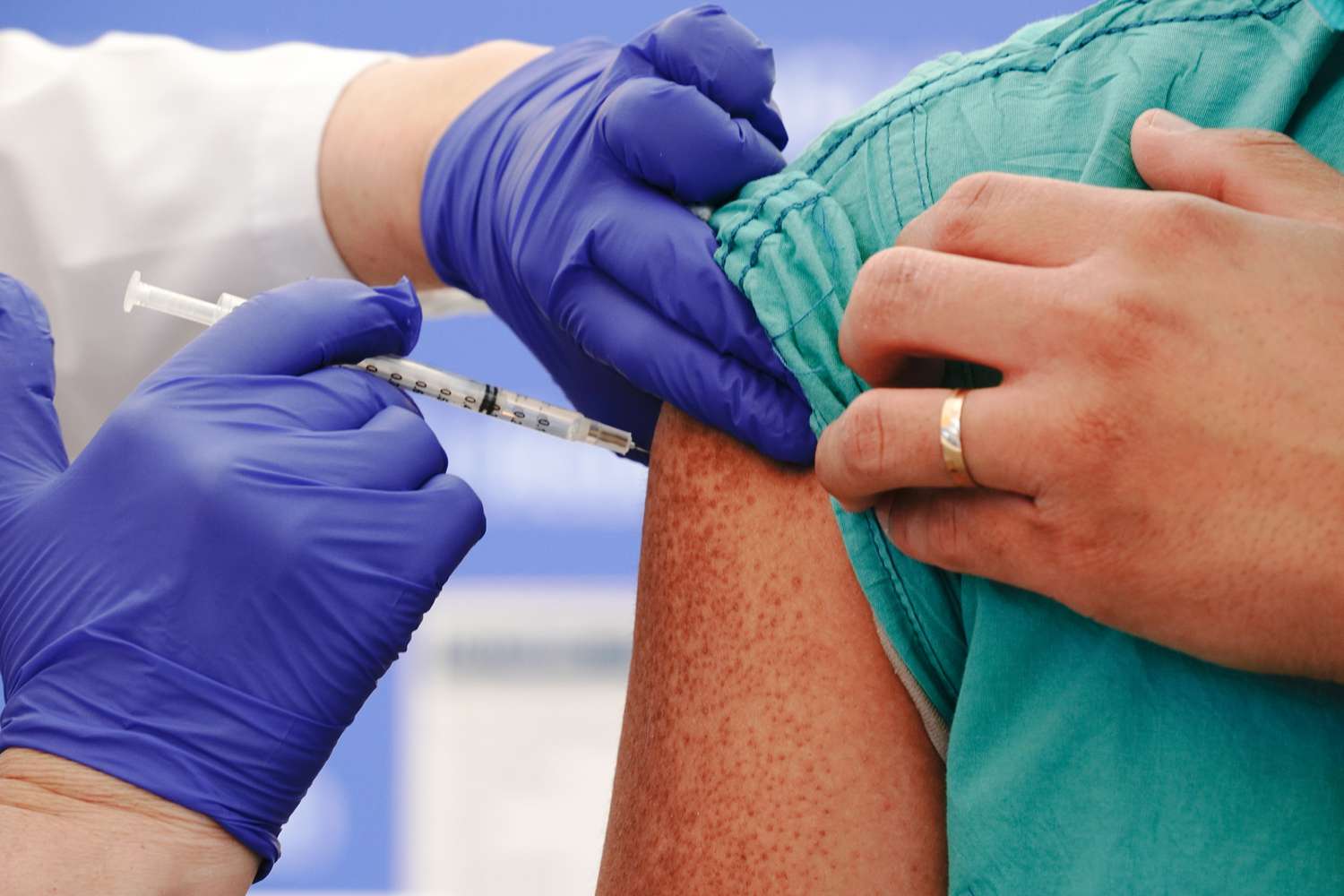What is the Recommended Waiting Period for COVID Vaccination After Exposure?

The United States is currently experiencing another surge in COVID cases, making it probable for individuals to come in contact with the virus.
This could potentially be an issue, as a large percentage of the population has yet to receive the latest bivalent COVID vaccine, with only about 19% of U.S adults having taken it, as per the latest data from the Centers for Disease Control and Prevention (CDC).
Experts suggest that exposure to COVID might serve as a catalyst for scheduling a vaccination appointment.
Andrew Stanley Pekosz, PhD, a professor at the Johns Hopkins Bloomberg School of Public Health, mentioned that there isn't official guidance on vaccination after encountering a person who tested positive for COVID-19.
The COVID vaccine mechanism involves the introduction of a protein segment, or proteins, to the immune system. Though the vaccines do not infect people with SARS-CoV-2, they aid the immune system in recognizing future exposures.
Upon vaccination, the individual's immune system responds over a span of two weeks, generating antibodies to remember unique proteins. Once encountering the proteins in future COVID exposures, these antibodies recognize the virus and combat it.
Jesse Bracamonte, DO, a family medicine doctor at Mayo Clinic, stated that almost everyone has developed some level of immunity against SARS-CoV-2, either from vaccination or prior infection or exposure. This means that any exposure to the virus would likely trigger an immune response.
While the body recognizes previous flu infections, he mentioned that the immune system needs the exact response due to the various types of flu variants. A bigger response is generated with the most recent vaccine, which trains the immune system to identify current variants.
If you are currently developing a response to a COVID exposure, it is advisable to wait until confirming that you are not getting sick. This time frame, known as the virus's incubation period, is typically 2-3 days for Omicron variants.
Bracamonte advises against vaccination if you test positive for COVID, as you risk spreading the disease and your immune system is already at full capacity, thus reducing the effectiveness of the vaccine.
However, if you test negative and decide to get vaccinated post-exposure, your immune system will begin responding in a way that may help protect you from severe disease resulting from this exposure. Nevertheless, a complete immune response takes approximately two weeks, according to Pekosz.
Pekosz also added that vaccination can provide protection against other potential exposures for the next two to three months.
Despite this, Bracamonte clarified that vaccination does not conclusively guarantee immunity against the virus, as various factors can influence a person's health, including stress levels, diet, underlying medical issues, exposure time to the virus, and the extent of viral shedding.
He cautions that not getting sick after one exposure does not translate to immunity against future exposures, affirming the importance of vaccination. He specially recommends vaccination for individuals with underlying health conditions, the elderly, and smokers.
For the young and healthy, an informed decision should be made after an honest discussion with a trustworthy physician, as per Bracamonte.
Bracamonte and Pekosz suggest a 3 to 6-month waiting period post-COVID infection before getting vaccinated with the latest COVID vaccine.
Vaccination before this period isn't dangerous but waiting can maximize the benefits, as most retain strong immunity for three to six months post-infection. This waiting period allows the immune system memory to decrease before vaccination boosts it back to extend protection.
If you haven’t gotten the latest bivalent vaccine—and you’ve managed to avoid COVID so far this year—“It’s not too late,” Pekosz told Health, noting that the latest vaccine can protect against the emerging JN.1 variant. “We expect COVID to be around for the winter season, so take this as a sign to go out and get vaccinated.”




